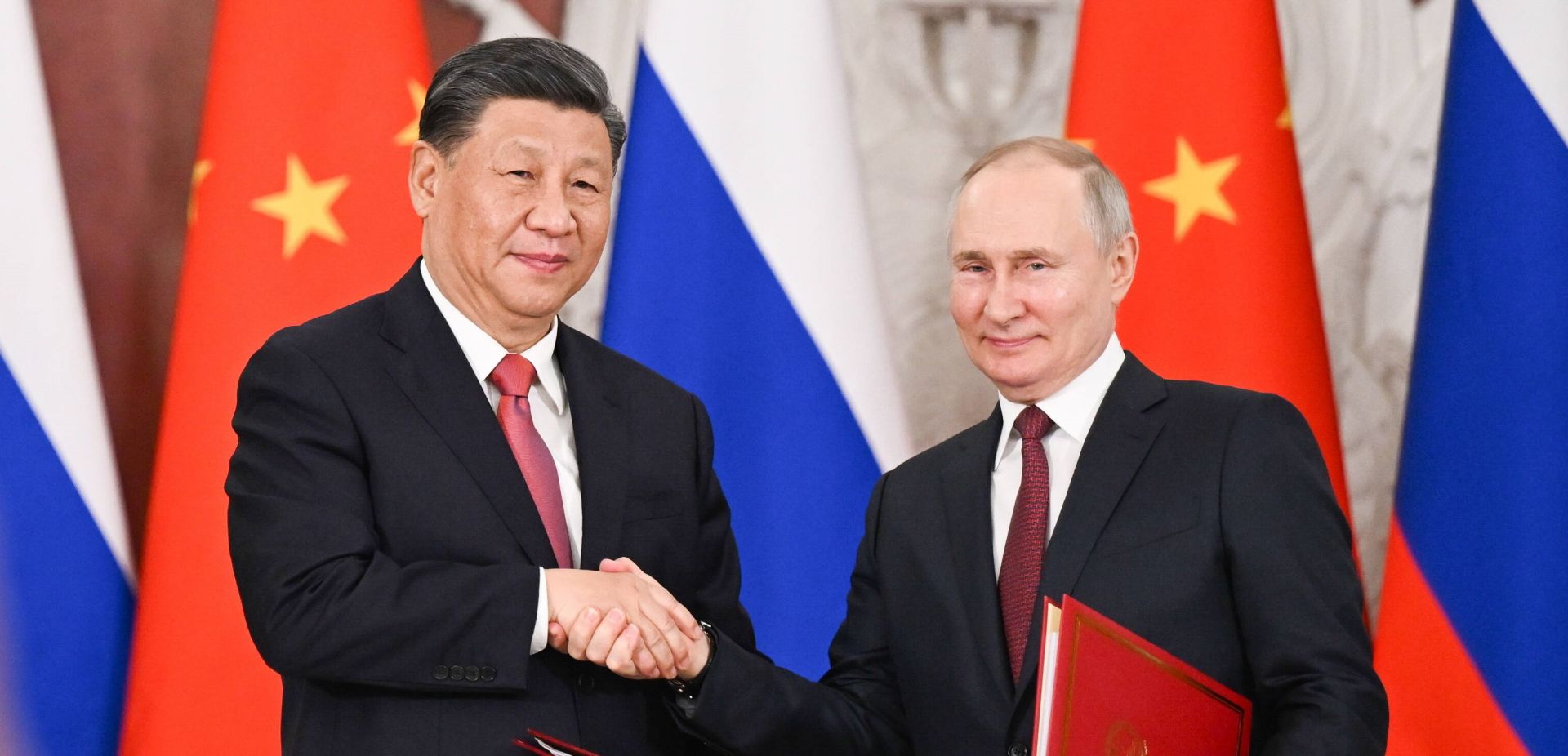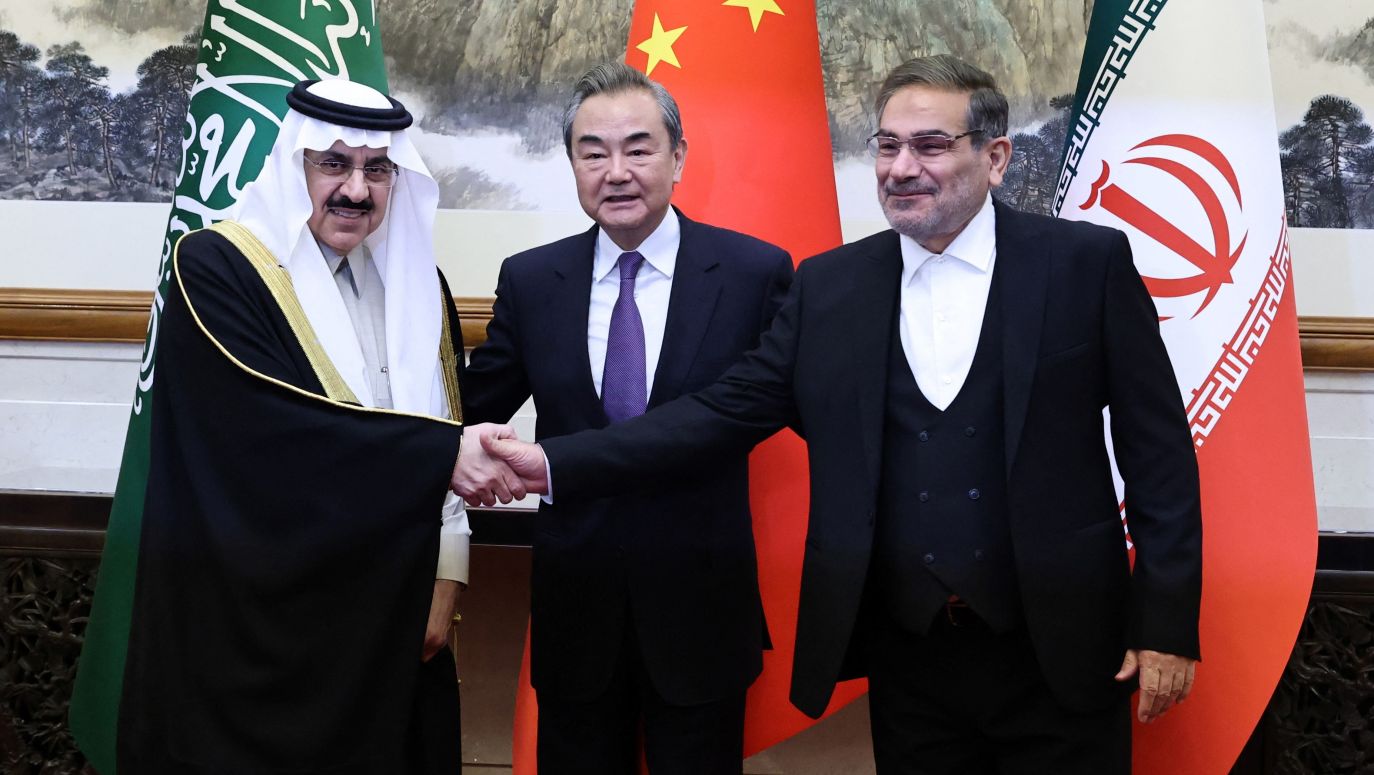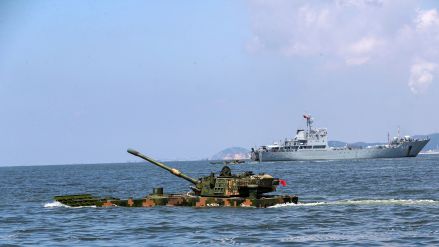The picture on the front page of the
Global Times says it all. In the centre, not exactly on the main axis, so that the composition is not too tedious and obvious, but certainly and without any doubt in the centre, stands President Xi. His eyes are squinted and no pupils are visible, so their expression remains inscrutable. His face is framed by a smile that, with some good will, could be called good-natured. In the hand that hangs loosely at the level of his abdomen, he holds the hand of a man standing next to him who seems to be supporting the hand of a partner taller than himself and more powerful.
The latter is Vladimir Putin. His face, too, has frozen into the smiling expression that the Russian president is accustomed to adopting in official circumstances. His eyes are turned sideways, his expression somewhat distracted, as if someone outside the frame has done something to draw his attention. Xi Jingping is looking straight into the camera. He looks bold and confident. The casual observer in spite of himself returns to the positioning of Xi’s hand, and there is no doubt: it is a gesture of a lord, a gesture of someone who is doing the shaker of his hand a favour.
The
Global Times is the Chinese contemporary equivalent of the communist
Pravda or, looking closer, the
People’s Tribune. This is not to say that it bears any resemblance to those titles from the decline of communism in the Soviet Union or the communist Poland. China is far from a decline. It is flourishing as a superpower. Therefore, the analogy must rather be sought more than half a century ago, when the secretary-general of the CPSU was regarded as one of the two most powerful people in the world. Reading between the lines in the texts published at the time was a compulsory activity for anyone who wanted to know anything about the Soviet Union.
Similarly, nowadays, reading between the lines of the texts in the
Global Times can sometimes be helpful when one wants to know where China stands. Its editors know this very well, so no element is left to chance. In addition, it is an authority (that’s probably the right name) published in English, so the content hidden between the lines is meant to reach a worldwide audience. This obliges all the more to be disciplined.
The photograph the editors placed above the article summarising President Xi’s visit to Moscow, otherwise full of fine words for the hosts and assurances of friendship, cooperation and partnership, was the best summary of the current state of relations between China and Russia. It could hardly be more telling: confident in his position, Xi stands next to Putin – who is trying to make up for it with his face – and graciously shakes his soft hand, which Putin tries to squeeze in a manly way.
This is not a partner attitude, although, it should be clearly noted, it is not a vassal attitude either. No, Putin does not look like Xi’s vassal. In fact, Xi wants nothing from him. Putin can do anything and Xi will let him do it, at the same time distancing himself from it. But this is just that distance that Putin fears most. This soft hand does not enslave, but neither does it support.
As some observers have noted, the joint statement by Xi and Putin did not include the phrase about a “no limits partnership” that so raised the pressure of politicians and observers around the world last year. It was used in a communiqué from a meeting between the two politicians a month before the outbreak of war, and was widely interpreted as Beijing’s acquiescence to Moscow’s military action on the one hand, and an announcement of Chinese support for the war on the other.
The last year has shown that the interpreters were wrong, and the absence of this phrase in the official language of the leaders now is significant. China still does not support Russia in its war with Ukraine, and the fact that Xi did not remind us of the lack of boundaries in the partnership, and Putin did not dare to remind him, may mean that clear limits are being placed on this very partnership. We do not yet know their exact course, but we can at least roughly sketch them out. The invaluable
Global Times, with its subtle signals, which the Russians are also quite good at, may prove helpful here.
 SIGN UP TO OUR PAGE
SIGN UP TO OUR PAGE 
On the day of Xi Jingping’s landing in Moscow, the Chinese authority posted two extremely distinctive texts. The first was an article by Russian political scientist and programme director of the Valdai Club, Timofey Bordachev. With all the fine words that usually accompany official visits, he emphasised the equivalence of China and Russia, their equal rights in mutual relations and their status as superpowers.
He also stressed that the two countries were not pursuing an imperialist policy, which would make any thinking person smile piteously, but is a common incantation among dictators and their acolytes, signalling that they are moving in a kind of meta-reality in which the meaning of words is suspended. As an aside, let us note that Xi Jingping’s entire twelve-point “peace plan” is written precisely in a way that clearly creates this meta-reality (or simply – unreality).
Bordachev also wrote about a multipolar world, the need to return to globalisation and, of course, accused the United States of all the evil in the world. The author – as I mentioned – emphasised the equality of partners and the normality of their relations. This was important: normality! One had the impression that he wanted to avoid at all costs any reference to exceptionalism. Just two ordinary powers pursuing an ordinary, good-neighbourly policy, friendly to the world, peace-loving and freely trading. War? What war? Not once in the entire text appears the name of the country Russia is trying to conquer. “Ukraine? Never heard of it,” Bordachev seemed to say.
Alongside this text, the
Global Times posted its own editorial. There, the accents were laid out quite differently. The name Ukraine was mentioned several times, although the word “war” was not used so as not to hurt Russian friends too much. Sufficiently hurtful were the words about President Xi’s visit to Moscow being a “journey of peace” aimed at “building bridges” and facilitating communication between countries embroiled in the “Ukraine crisis”. Here, not only between the lines, but almost directly, one could read that Russia was presented as the partner that not only fails, but also has to be cleaned up after.
Officially, of course, the blame for fuelling the “crisis” has been placed on the United States, which is supplying arms to Ukraine and thus “putting out the fire with petrol”. However, this is a perfectly ordinary element of Chinese propaganda, which does not neglect any opportunity to rhetorically aggravate its arch-enemy, and such statements constitute obligatory staffage in Chinese official statements. However, the staffage should not be confused with the essential message, and that was undoubtedly a serious impatience with the irresponsible actions of the Russian dictator.
Once again, there was also the statement that China is in no way responsible for the “crisis” in Ukraine and is not a participant in it. They are merely a party that is unable to stand still in the face of any unrest and offers their good offices. As happened recently with Saudi Arabia and Iran, which decided to establish diplomatic relations thanks to China’s mediation. This political success is, incidentally, widely presented by Chinese propaganda as proof of the peaceful and constructive attitude of the country’s leadership. If it was successful in the Middle East, it will certainly be successful in Ukraine.
However, the Chinese comrades devoted most of their article to economic issues. Be that as it may, even if the war continues, it can always be said to be Biden’s fault, while true friendship is realised in trade and investment. But here, too, there was an element that might have caused the Kremlin host a dry throat, especially in view of the announcement of a “deep exchange of views” on the subject by the two leaders. Namely, the
Global Times mentioned that both sides must “jointly ensure the stability and capacity of industrial supply chains”.

 SIGN UP TO OUR PAGE
SIGN UP TO OUR PAGE 






